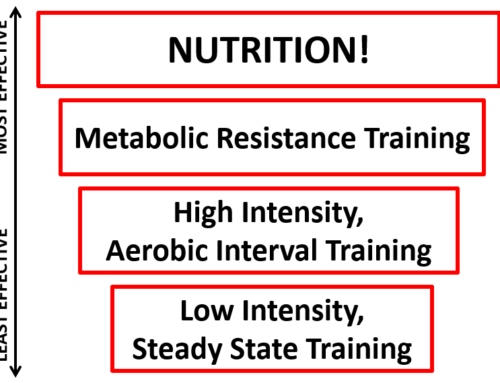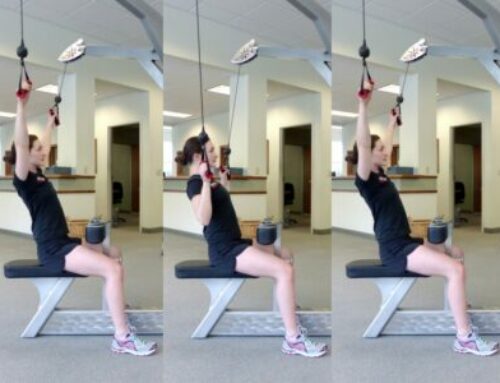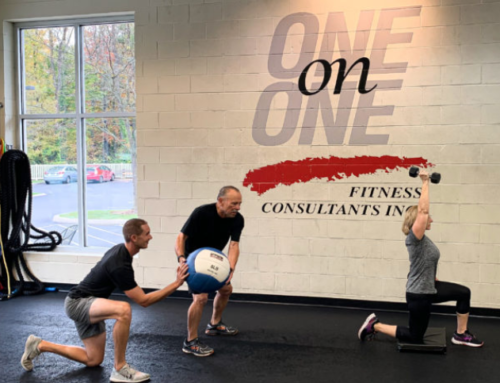By Geoff Borro MS RD CSSD & Haley Golich MS RD
Last Updated: 3/24/24
Ever wish you had more energy to power through the end of a tough workout? Have you ever felt excessively sore after a workout, or felt as though you were not progressing towards your fitness or body composition goals? If the answer is yes to any of these questions, pre and post-workout nutrition could be the missing link. No matter your goals, consuming the right nutrients at the right times is key to replenishing and rebuilding your muscles.
Pre-Workout Nutrition
No one likes feeling light-headed or exhausted while exercising. By consuming a pre-workout meal or snack, you can have more energy for your entire workout, resulting in a safer, more effective session. Be aware that nutrition needs change as you get closer to your workout start time. Refer to the following guidelines to optimally fuel your body prior to exercise.
Last Full Meal: 3 – 4 hours before exercise
Recommendation: A large meal is fully digested in about 3-4 hours. The last substantial meal you eat before exercise should consist of complex carbohydrates, lean protein, and a small amount of healthy fats.
Examples:
- Whole wheat pasta + broccoli + grilled chicken or fish
- Oatmeal + fresh fruit + low-sugar Greek yogurt (e.g., Chobani less sugar Greek yogurt)
- Whole wheat toast + scrambled eggs + vegetables of choice
Snack: 1.5 – 2 hours before exercise
Recommendation: If you are unable to have a full meal 3-4 hours before exercise, eat a snack consisting of mostly complex carbohydrates, lean protein and little to no fat 2 hours before exercise.
Consuming a small amount of protein and fat with your meal helps to slow digestion slightly, making the energy from carbohydrates readily available when you begin your workout 2 hours later. Eating a mixed meal also helps you feel fuller for longer compared to eating a meal of pure carbohydrates.
Examples:
- High-protein cereal or oatmeal with low fat milk (e.g., Special K Protein cereal, Kashi Go cereal)
- Whole wheat or whole grain sandwich or wrap with turkey, cheese, and vegetables
- Fruit + low-sugar Greek yogurt (e.g., Two Good)
Snack: 30 minutes – 1 hour before exercise
Recommendation: Eat a high complex carbohydrate snack 30-60 minutes prior to exercise.
Carbohydrates are digested and absorbed much more quickly than protein or fat, and they are the best source of energy for your body. Protein and fat slow digestion, so minimal amounts should be included in a snack eaten this close to exercise.
Examples:
- 1 medium piece of fruit or small cup of applesauce
- Whole wheat or whole grain bread with a thin layer of nut butter
- ¼ cup cereal or low-fat granola
Post-Workout Nutrition
Consuming a meal or snack after exercise kick starts the recovery process by providing carbohydrate and protein to support muscle repair and growth. Your nutrition needs will vary with workout intensity. Refer to the following guidelines to optimally fuel your body after exercise.
After easy to moderate exercise
Recommendation: Consume a meal or snack within 60 minutes after your workout containing complex carbohydrates, lean protein, and a small amount of healthy fat.
After exercise, your body is primed to efficiently use nutrients to replenish the energy used and fuel your body for the next several hours. Having protein along with your carbohydrates will help repair the muscles that were used and a small amount of fat will help you feel fuller for longer.
Examples:
- Whole wheat tortilla + black beans + low-fat cheese
- Hard boiled eggs + whole wheat toast or English muffin
- Quinoa + lean ground turkey or beef + roasted vegetables
After rigorous exercise
Recommendation: Have a meal or snack within 30-45 minutes after your workout containing mostly carbohydrates, a moderate amount of lean protein, and little to no fat.
In order to improve your fitness level, you must consume carbohydrates after exercise to replenish energy in your muscles and protein to repair damaged muscle tissue and build new tissue.
Examples:
- Fruit + low-sugar yogurt (e.g., Siggi’s lower sugar skyr)
- Protein bar
- Smoothie made with 1 cup frozen fruit, 8oz low-fat milk, 1 cup Greek yogurt or skyr, and a handful of spinach or kale
- Whole wheat or whole grain sandwich or wrap with turkey, vegetables, cheese, or hummus
By following these guidelines and giving your body the nourishment it needs before and after exercise, you will set yourself up for energetic workouts, enhanced recovery, and steady progress towards your goals. You might be surprised at how good you can feel!
**Please note that the recommendations and examples given are not exhaustive options and are intended for moderately active adults. Please contact us to learn more about getting individualized recommendations.





